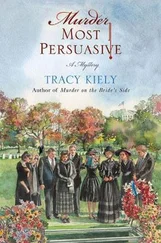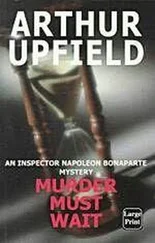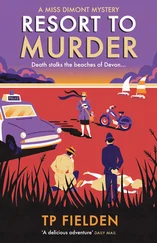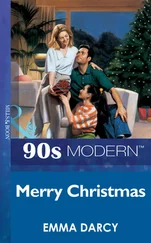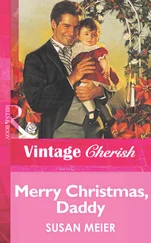“But we don’t have to fight to the death on the staircase,” Wrigglesworth pointed out.
“We don’t have to fight at all, Wrigglesworth.”
“As your client did.”
“As my client may have done. Remember the presumption of innocence.”
“This is rather funny, this is.” The prosecutor pulled back his lips to reveal strong, yellowish teeth and laughed appreciatively. “You know why your man Timson is called ‘Turpin’ ?”
“No.” I drank port uneasily, fearing an unwelcome revelation.
“Because he’s always fighting with that sword of his. He’s called after Dick Turpin, you see, who’s always dueling on television. Do you watch television, Rumpole?”
“Hardly at all.”
“I watch a great deal of television, as I’m alone rather a lot.” Wrigglesworth referred to the box as though it were a sort of penance, like fasting or flagellation. “Detective Inspector Wainwright told me about your client. Rather amusing, I thought it was. He’s retiring this Christmas.”
“My client?”
“No. D. I. Wainwright. Do you think we should settle on this port for the Bishop? Or would you like to try a glass of something else?”
“Christmas,” I told Wrigglesworth severely as we sampled the Cockburn, “is not just a material, pagan celebration. It’s not just an occasion for absorbing superior vintages, old darling. It must be a time when you try to do good, spiritual good to our enemies.”
“To your client, you mean?”
“And to me.”
“To you, Rumpole?”
“For God’s sake, Wrigglesworth!” I was conscious of the fact that my appeal was growing desperate. “I’ve had six losers in a row down the Old Bailey. Can’t I be included in any Christmas spirit that’s going around?”
“You mean, at Christmas especially it is more blessed to give than to receive?”
“I mean exactly that.” I was glad that he seemed, at last, to be following my drift.
“And you think I might give this case to someone, like a Christmas present?”
“If you care to put it that way, yes.”
“I do not care to put it in exactly that way.” He turned his pale-blue eyes on me with what I thought was genuine sympathy. “But I shall try and do the case of R. v . Timson in the way most appropriate to the greatest feast of the Christian year. It is a time, I quite agree, for the giving of presents.”
When they finally threw us out of Pommeroy’s, and after we had considered the possibility of buying the Bishop brandy in the Cock Tavern, and even beer in the Devereux, I let my instinct, like an aged horse, carry me on to the Underground and home to Gloucester Road, and there discovered the rissoles, like some traces of a vanished civilization, fossilized in the oven. She Who Must Be Obeyed was already in bed. feigning sleep. When I climbed in beside her, she opened a hostile eye.
“You’re drunk, Rumpole!” she said. “What on earth have you been doing?”
“I’ve been having a legal discussion,” I told her, “on the subject of the admissibility of certain evidence. Vital, from my client’s point of view. And, just for a change, Hilda, I think I’ve won.”
“Well, you’d better try and get some sleep.” And she added with a sort of satisfaction, “I’m sure you’ll be feeling quite terrible in the morning.”
As with all the grimmer predictions of She Who Must Be Obeyed, this one turned out to be true. I sat in the Court the next day with the wig feeling like a lead weight on the brain and the stiff collar sawing the neck like a blunt execution. My mouth tasted of matured birdcage and from a long way off I heard Wrigglesworth say to Bridget O’Dowd, who stood looking particularly saintly and virginal in the witness box, “About a week before this, did you see the defendant, Edward Timson, on your staircase flourishing any sort of weapon?”
It is no exaggeration to say that I felt deeply shocked and considerably betrayed. After his promise to me, Wrigglesworth had turned his back on the spirit of the great Christmas festival. He came not to bring peace but a sword.
I clambered with some difficulty to my feet. After my forensic efforts of the evening before, I was scarcely in the mood for a legal argument. Mr. Justice Vosper looked up in surprise and greeted me in his usual chilly fashion.
“Yes, Mr. Rumpole. Do you object to this evidence?”
Of course I object, I wanted to say. It’s inhuman, unnecessary, unmerciful, and likely to lead to my losing another case. Also, it’s clearly contrary to a solemn and binding contract entered into after a number of glasses of the Bishop’s putative port. All I seemed to manage was a strangled, “Yes.”
“I suppose Mr. Wrigglesworth would say—” Vosper, J., was, as ever, anxious to supply any argument that might not yet have occurred to the prosecution “—that it is evidence of ‘system.‘ “
“System?” I heard my voice faintly and from a long way off. “It may be, I suppose. But the Court has a discretion to omit evidence which may be irrelevant and purely prejudicial.”
“I feel sure Mr. Wrigglesworth has considered the matter most carefully and that he would not lead this evidence unless he considered it entirely relevant.”
I looked at the Mad Monk on the seat beside me. He was smiling at me with a mixture of hearty cheerfulness and supreme pity, as though I were sinking rapidly and he had come to administer extreme unction. I made a few ill-chosen remarks to the Court, but I was in no condition, that morning, to enter into a complicated legal argument on the admissibility of evidence.
It wasn’t long before Bridget O’Dowd had told a deeply disapproving jury all about Eddie “Turpin” Timson’s sword. “A man.” the judge said later in his summing up about young Edward, “clearly prepared to attack with cold steel whenever it suited him.”
When the trial was over, I called in for refreshment at my favorite watering hole and there, to my surprise, was my opponent Wrigglesworth, sharing an expensive-looking bottle with Detective Inspector Wainwright. the officer in charge of the case. I stood at the bar, absorbing a consoling glass of Pommeroy’s ordinary, when the D. I. came up to the bar for cigarettes. He gave me a friendly and maddeningly sympathetic smile.
“Sorry about that, sir. Still, win a few, lose a few. Isn’t that it?”
“In my case lately, it’s been win a few, lose a lot!”
“You couldn’t have this one, sir. You see, Mr. Wrigglesworth had promised it to me.”
“He had what? ”
“Well, I’m retiring, as you know. And Mr. Wrigglesworth promised me faithfully that my last case would be a win. He promised me that, in a manner of speaking, as a Christmas present. Great man is our Mr. Wrigglesworth, sir, for the spirit of Christmas.”
I looked across at the Mad Monk and a terrible suspicion entered my head. What was all that about a present for the Bishop? I searched my memory and I could find no trace of our having, in fact, bought wine for any sort of cleric. And was Wrigglesworth as inexperienced as he would have had me believe in the art of selecting claret?
As I watched him pour and sniff a glass from his superior bottle and hold it critically to the light, a horrible suspicion crossed my mind. Had the whole evening’s events been nothing but a deception, a sinister attempt to nobble Rumpole, to present him with such a stupendous hangover that he would stumble in his legal argument? Was it all in aid of D. I. Wainwright’s Christmas present?
I looked at Wrigglesworth, and it would be no exaggeration to say the mind boggled. He was, of course, perfectly right about me. I just didn’t recognize evil when I saw it.
DEAD ON CHRISTMAS STREET – John D. MacDonald
Читать дальше


